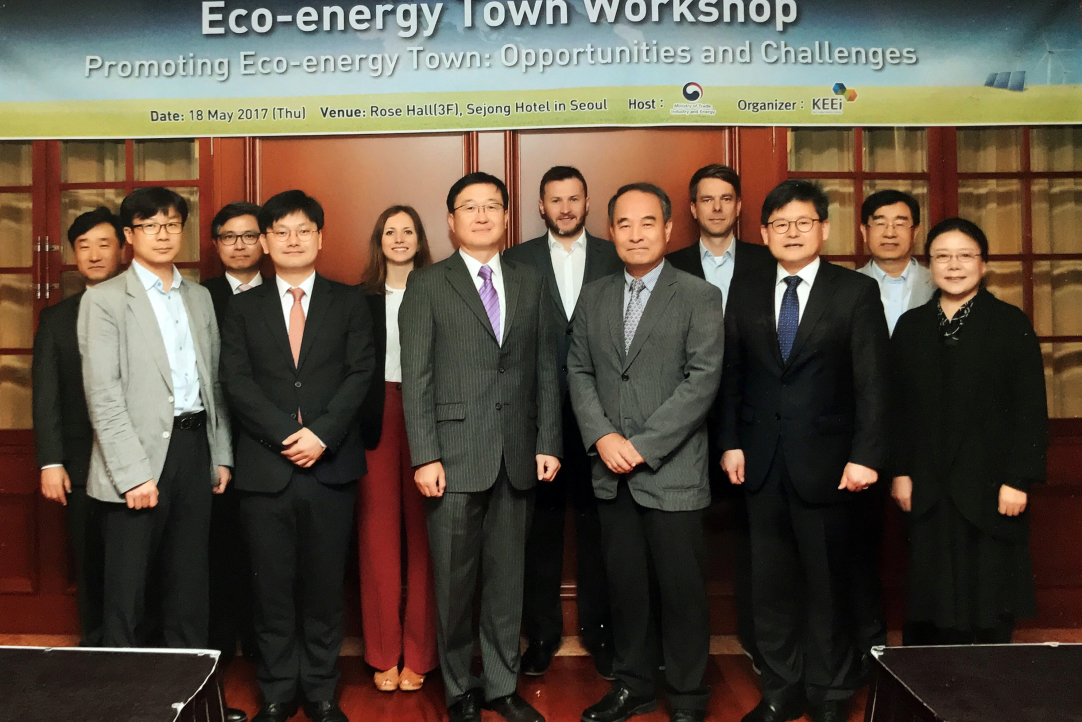HSE Experts to Take Part in Benchmarking Energy Efficiency in Cities

On May 18th, 2017, an Eco-energy Town Workshop took place in Seoul under the auspices of the South Korean Ministry of Trade, Industry and Energy. As part of the session ‘Opportunities and problems of building energy-efficient cities’, Ilya Dolmatov, Director of the HSE Institute of Pricing and Regulation of Natural Monopolies, gave a presentation on ‘Energy efficient cities in Russia: priorities and challenges for the future’.
Russia is a country where the problem of energy efficient cities is particularly pressing, the expert says. First, this is due to high urbanization; in 2010, the share of urban residents was 74%. Second, the harsh climate leads to high consumption of energy for heating buildings.
Thanks to its natural resources and infrastructure, Russia is capable of meeting its population’s needs and maintaining relatively low energy prices. But this doesn’t mean that the country should disregard energy efficiency, Ilya Dolmatov believes.
New technologies for more effective use of power systems, as soon as they reach technological reliability and acceptable payback terms, are being actively introduced as part of urban infrastructure modernization programmes. They are aimed at increasing the quality of life in the cities, improving the ecology, and decreasing the negative anthropogenic impact on the environment (greenhouse gas emission).
That’s why the medium-term Russian priorities in the field of energy saving in cities are:
1. Use of energy-efficient (LED) light sources in street lighting and in the public sector;
2. Improving the energy efficiency of buildings by means of automatic weather regulation of heat consumption;
3. In small settlements – transition to modern low-carbon technologies (including autonomous and combined sources of energy supply based on renewable energy sources with the use of storage devices and diesel generators). Demonstrations of the use of wind and solar energy sources have been created in cities to popularize these technologies.
The expert believes that benchmarking is an important tool to evaluate effectiveness, search for best practices, and create internal mechanisms to motivate the cities.
The existing benchmarking studies and rankings in energy efficiency currently compare countries, not cities. There aren’t any comparisons of specific cities on the global agenda, Ilya Dolmatov explained.
In June 2017, Russia is going to launch a sustainable city development initiative on Clean Energy Ministerial, an international platform. One of the initiative’s key points is benchmarking the energy efficiency of cities.
It’s necessary to benchmark the energy efficiency of cities not only to record the current situation in energy efficiency, but also to identify the leaders and outsiders in the process. The task of this study is to identify targets, disseminate knowledge about best practices and identify the most competitive and promising technologies for implementation, since global breakthroughs in energy efficiency and environmental protection are possible only with global joint effort.
It is suggested to carry out benchmarking in six areas of energy-efficiency technology use: smart cities; lighting; heating and cooling; buildings; renewable energy; and transport sector. The experts believe that these areas have the biggest potential for energy consumption decrease, as well as modern technologies to realize this potential.
HSE has been involved in science & technology forecasting in Russian for many years. Our experts carry out research in the field of long-term forecasting and prioritization of scientific, technical, innovative and socio-economic development with the use of Foresight methods. They have created a unique set of tools for science & technology forecasting that allows the use of results of benchmarking energy efficiency and energy saving for creating forecasts for their development and correcting them for the medium- and long-term perspective.
Experts from the Higher School of Economics are going to take an active part in the benchmarking study and are interested in working together with foreign colleagues.